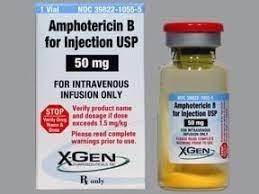A nurse is caring for a client who has a prescription for total parental nutrition (TPN).
Which of the following routes of administration should the nurse use?
Central venous access device
Midline catheter
Subcutaneous
Intraosseous
The Correct Answer is A
Choice A rationale:
Total parental nutrition (TPN) is a highly concentrated intravenous nutritional solution that provides essential nutrients. It is administered through a central venous access device to ensure proper dilution and delivery.
Choice B rationale:
A midline catheter is not appropriate for administering TPN, as it may not be suitable for the concentrated solution.
Choice C rationale:
Subcutaneous administration is not suitable for TPN, as it requires intravenous access to provide the necessary nutrients directly into the bloodstream.
Choice D rationale:
Intraosseous access is not commonly used for long-term nutritional support like TPN; it is more often used for emergent situations.
Nursing Test Bank
Naxlex Comprehensive Predictor Exams
Related Questions
Correct Answer is C
Explanation
Choice A rationale:
Testing negative for HIV does not mean that the client is taking the antibiotics as prescribed. HIV is a virus that weakens the immune system and makes people more susceptible to tuberculosis, but it is not related to the medication regimen for tuberculosis.
Choice B rationale:
having a positive purified protein derivative test does not mean that the client is taking the antibiotics as prescribed. A purified protein derivative test is a skin test that checks for exposure to tuberculosis bacteria, but it does not measure the effectiveness of the medication regimen. A positive test means that the client has been exposed to tuberculosis bacteria at some point in their life, but it does not mean that they have an active infection or that they are taking the antibiotics as prescribed.
Choice C rationale:
The client has a negative sputum culture. A sputum culture is a test that checks for the presence of tuberculosis bacteria in the mucus that is coughed up from the lungs. A negative sputum culture means that the bacteria are no longer detectable and that the medication regimen is effective. A positive sputum culture means that the bacteria are still present and that the medication regimen may need to be adjusted.
Choice D rationale:
Having normal liver function test results does not mean that the client is taking the antibiotics as prescribed. Liver function tests are blood tests that check for damage to the liver caused by medications or other factors. Isoniazid and rifampin can cause liver damage, so the nurse should monitor the client's liver function tests regularly to prevent or detect any problems. However, having normal liver function test results does not mean that the client is taking the antibiotics as prescribed or that the medication regimen is effective.
Correct Answer is C
Explanation
Choice A rationale:
Amphotericin B lipid complex is normally yellow in color, so discarding it would be wasteful and inappropriate. The nurse should only discard the medication if it is cloudy, discolored, or contains particulate matter.
Choice B rationale:
Amphotericin B lipid complex should be administered over 1 hr, not 2 hr, to reduce the risk of infusion-related reactions such as fever, chills, rigors, hypotension, and tachycardia. The nurse should also premedicate the client with antipyretics, antihistamines, and corticosteroids to prevent or minimize these reactions.
Choice C rationale:
Priming the tubing with a compatible solution, such as 0.9% sodium chloride, helps prevent the medication from adhering to the tubing and ensures that the full dose reaches the client.
Choice D rationale:
Amphotericin B lipid complex should be administered using an infusion pump, not a gravity flow set, to ensure accurate and consistent delivery of the medication. The nurse should also use a filter needle when drawing up the medication from the vial and a 5-micron filter when infusing it to remove any impurities or aggregates.

Whether you are a student looking to ace your exams or a practicing nurse seeking to enhance your expertise , our nursing education contents will empower you with the confidence and competence to make a difference in the lives of patients and become a respected leader in the healthcare field.
Visit Naxlex, invest in your future and unlock endless possibilities with our unparalleled nursing education contents today
Report Wrong Answer on the Current Question
Do you disagree with the answer? If yes, what is your expected answer? Explain.
Kindly be descriptive with the issue you are facing.
